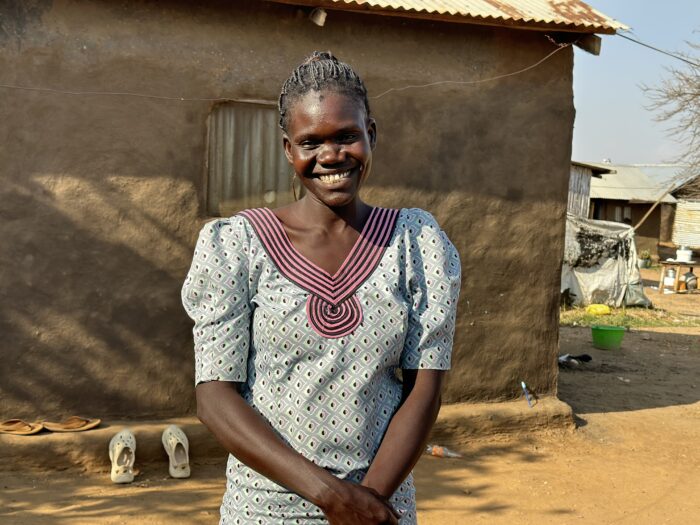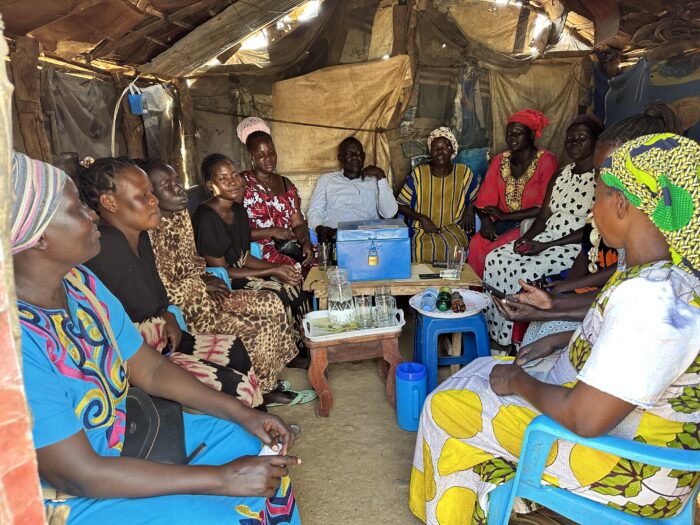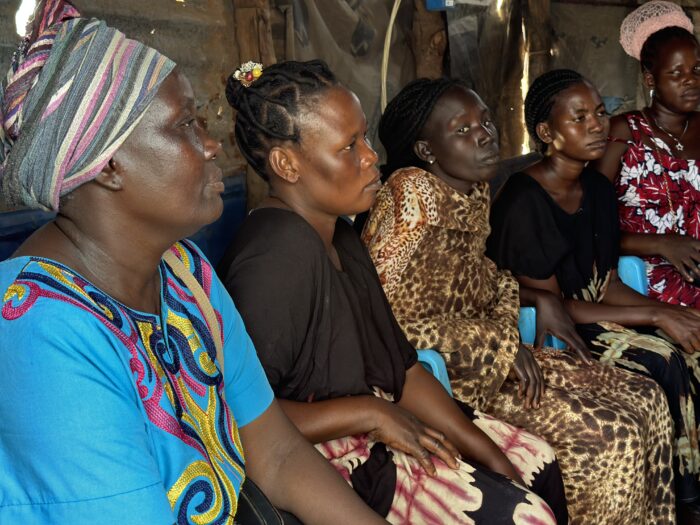Radio, changing attitudes and perceptions across South Sudan. Happy World Radio Day!
February 13, 2024 9:46 amIt is a hot and windy afternoon in the outskirts of Juba. The noise of playing children can be heard. It is a busy neighbourhood with mainly small tukuls (a traditional-style hut used for housing in South Sudan) and a few semi-permanent houses.
A group of women have come together in a makeshift space. They greet each other with smiles and laughter. Once settled, one voice commands attention. It is Norah. She starts greeting the other women and welcoming them to the session, which is about to begin. Norah is a Community Mobilisation Volunteer working with Girls’ Education South Sudan (GESS).

Community Mobilisation Volunteers lead listening clubs and community dialogues in different communities across all ten states and three administrative areas of South Sudan. GESS uses radio programmes and community outreach activities to help support positive behaviour change towards the education of girls and learners with disabilities.
GESS uses radio stations across South Sudan to broadcast a 15-minute factual radio programme called ‘Our School’ (). The radio programmes are loaded onto solar-powered radio sets and used in areas without radio frequency coverage, and hard-to-reach areas.
Norah has been in Luri Payam of Central Equatoria State carrying out these activities for over a year, moving from one location to another. As the members of the community dialogue settle in to have their discussion, they start with a listening session, listening to an episode of the ‘Our School’ radio programme produced by GESS, after which the participants discuss the content.
“We meet here at least twice a month to have our sessions. We first listen to the radio programme then we have a discussion on the content. After listening to the programme, we then share our experiences about how the stories in the radio programme are similar to the ones in our communities, and we come up with solutions that work for us. For instance, if the problem is that people are not sending children with disabilities to school, then we agree to keep an eye on each other or assign one member of the community to follow up with all parents with children with disabilities to send their children to school. Some parents are motivated by the stories of success of the people in the programme then they choose to change,” Norah.

GESS has been implementing the behaviour change activities during the second phase of the programme, since 2019, building on the gains made in the first phase of the programme which started in 2013. To date, over two million people have been reached with the radio programme and many more people through the listening clubs and community dialogues.
“In my own assessment, many people are listening to the programme (Our School), and it is changing people positively. Before we had the community dialogues, many children used to be on the streets or miss school because parents did not care so much about their children attending school every day, but now things are different,” Norah states.
When questioned on the exact impact of the community dialogue that she has witnessed after a year of work, Norah had this to say, “Before we started the community dialogues, women used to think that only men were responsible for seeing that their children go to school, but now women are involved in the education of their children. Others have started small businesses to support their children. In this group, we have a saving scheme for the women and they use their savings to support children in school. This is the power of the radio programme” Norah adds.
“Before joining the community dialogue group or listening to the radio programmes, I used to consider myself vulnerable because I’m a woman. But after joining the group, I became self-reliant. I took a loan from the saving group that made me to establish a vegetable farm. I purchased equipment for watering the crops. The business is doing well, and I am using the money to send my child to school. I got this idea after listening to the episode on budgeting for education,” Hellen, community member.

The ‘Our School’ radio programme covers topics such as budgeting for education; the importance of educating children with disabilities; young mothers turning to school; and the journey to school.
The radio programmes and the community dialogues continue to impact lives of community members. Hellen, a member of the group had this to say, “our problem was lack of exposure. We did not hear such programmes about how to plan for school, how to support learners with disabilities, etc. Now in our community, we know what to do to ensure our children go to school, we also know how to talk to other people with children with disabilities to ensure they are not kept at home. I am a changed person!” Hellen concludes, sounding confident.
Radio is a powerful tool in bringing about change in a community. Today, GESS joins the rest of the world to celebrate World Radio Day under the theme “Radio: A Century Informing, Entertaining, and Educating.” The GESS radio programmes and the community outreach activities continue to bring change in communities across South Sudan.
Categorised in: Disability Inclusion, Girls' Education, Human Interest Story, Social & Behavioural Change Communication
Comments are closed here.